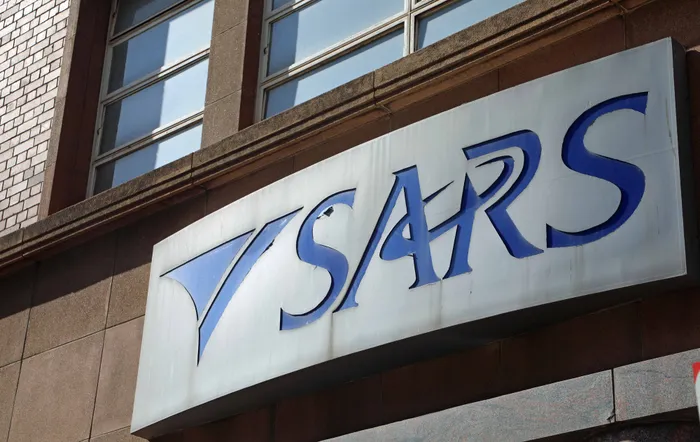
The South African Revenue Service (Sars) has collected more tax revenue than projected by the National Treasury in the budget tabled in May 2025.
Image: Timothy Bernard / Independent Newspapers
The South African Revenue Service (Sars) has collected more tax revenue than projected by the National Treasury in the budget tabled in May 2025.
According to the Medium-Term Budget Policy Statement (MTBPS) presented by Finance Minister Enoch Godongwana in the National Assembly, Sars collected just over R924 billion in the first half of the 2025/2026 financial year.
“As indicated in the 2025 Budget, an additional R4 billion was allocated to the South African Revenue Service (Sars). This allocation was intended in part to strengthen debt collection, and thereby increase revenue collected, by between R20 and R50 billion per year. We will continue to monitor Sars’s revenue performance for the remainder of the year.
"This assessment will inform whether the R20 billion in additional tax increases for the 2026 Budget, as earlier proposed, can be withdrawn. A final decision will be announced in the 2026 Budget,” he said.
Godongwana attributed the improved revenue outlook to lower-than-expected VAT refunds and stronger household expenditure, which boosted value-added tax collections.
The Treasury reported that domestic VAT collections grew by 7.8% in response to resilient consumer spending. “Weaker economic activity and stronger enforcement to stop fraudulent claims slowed growth in VAT refunds. Net VAT collections will exceed 2025 budget estimates,” it said.
Corporate and dividend tax collections also exceeded expectations, driven by strong performance in the trade, electricity, and finance sectors, and supported by large one-off dividend tax payments in mining and retail.
However, personal income tax collections were slightly below forecast. Fuel levy collections showed improvement, supported by increased payments from fuel importers and the settlement of large diesel refund claims.
“Fuel levy collections have been driven by strong growth in payments from fuel importers. Total collections are estimated to improve in 2025/2026, following the sharp contraction in demand in 2024/25, alongside large diesel refund claims settlements,” the Treasury said.
Despite these gains, import VAT and customs duties are expected to underperform relative to budget projections, reflecting weaker import growth. Specific excise duties are also projected to fall short of expectations.
Godongwana raised concern about the impact of illicit trade on the economy, public health, and revenue collection.
“The growing markets for illicit cigarettes and alcohol pose a serious risk to public health and undermine legitimate businesses. Each year, billions of rands in taxes go uncollected, funds that could have closed our revenue gap and avoided tax increases entirely,” he said.
He noted that since 2020, the government has lost approximately R40 billion in excise revenue due to the cigarette black market.
“The same is true for illicit alcohol and fuel. The government is clamping down on this illegal trade. In the last six months, Sars suspended three licenses for non-compliant tobacco production,” he said.
According to Godongwana, the Financial Intelligence Centre has provided intelligence reports to Sars to assist in investigations of criminal syndicates.
“Together, they have identified illicit markets in tobacco, precious metals, fuel, and procurement fraud. Customs officials must fulfil their duty to prevent criminals from dodging taxes and flooding our markets with dangerous products,” he said.
Looking ahead, Godongwana said the government expects tax collections to remain buoyant over the medium term.
“Despite the higher-than-expected revenue performance in 2025/26, gross revenues are projected to fall short of 2025 Budget estimates by around R15.7 billion over the next two years. Improved tax revenues will require more sustainable economic growth and further gains in tax compliance and administration,” he said.
He confirmed that consolidated government spending will increase from R2.6 trillion this year to R2.9 trillion in 2028/29.
“Our commitment to support low-income and vulnerable households through education, health, and social protection remains. The lion’s share of consolidated non-interest spending, approximately 61 per cent over the next three years, continues to fund the basket of government-provided services and benefits that reduce the cost of living for our citizens. This spending is our commitment to the redistribution of income and opportunities in favour of the most vulnerable households in society,” Godongwana said.
To improve fiscal efficiency, the minister said targeted and responsible savings were underway. “Eliminating waste and inefficiency in government is non-negotiable if we are to maintain public trust that tax money is spent responsibly. The Targeted and Responsible Savings (TARS) initiative systematically identifies duplication, eliminates waste, and reorganises programmes to deliver value for money.
"We are implementing medium-term savings of R6.7 billion by closing or scaling down low-priority and underperforming programmes immediately. More than half of this involves identifying people who are double-dipping and defrauding the social grants system,” he said.
PERSONAL FINANCE